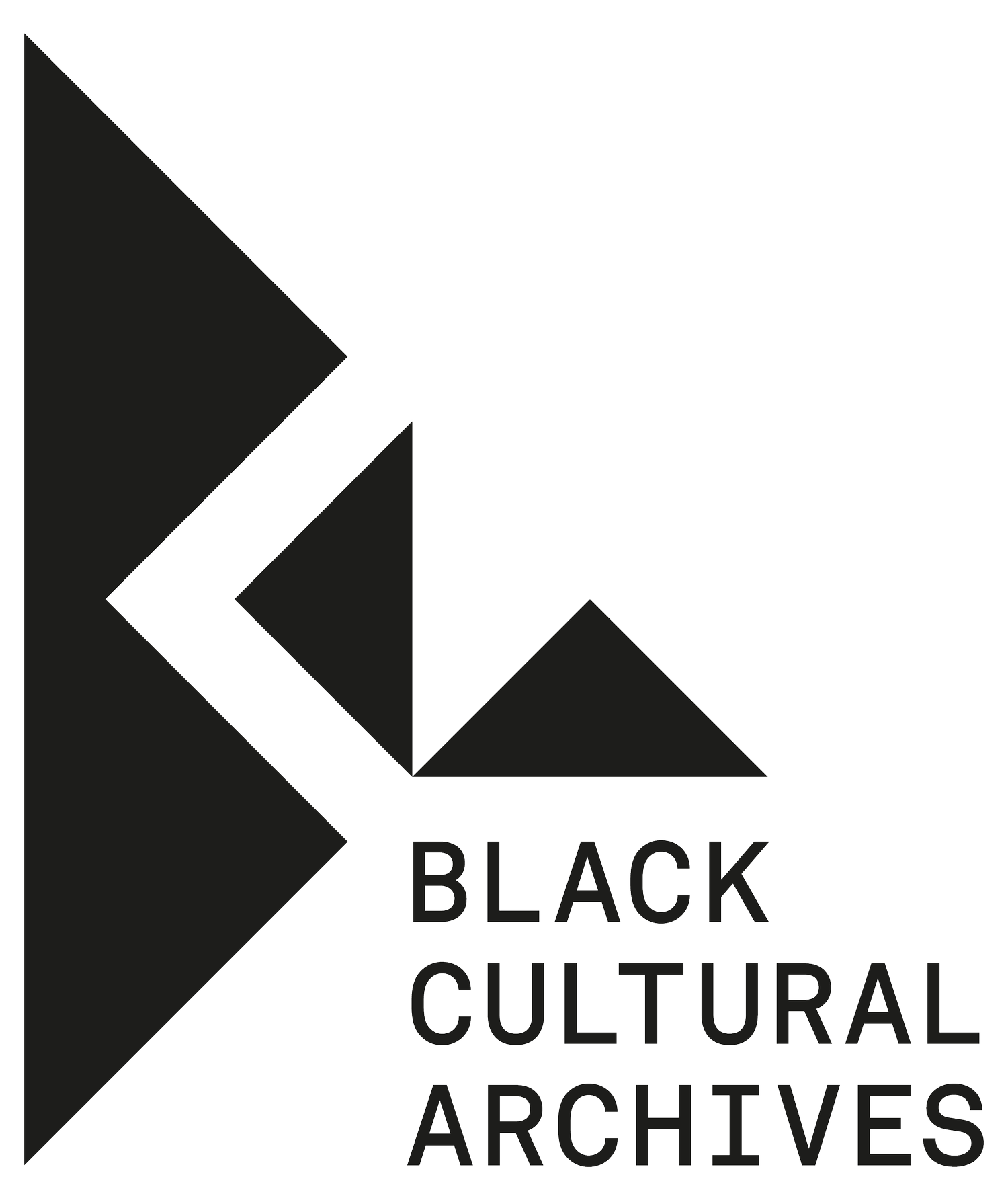Researcher-in-Residence: Miranda Armstrong
Could you introduce yourself, Miranda?
From Miranda’s research-based graphic pamphlet, Beyond the myth: single black mothers and their sons. Illustration by Chikaboo Designs
I’m a sociology researcher and a Black Londoner, a child of migrants, and a single mum. This background informs my research interests in unequal experiences of cities and under- and misrepresented experiences of motherhood.
Another thing I’m passionate about is how academic research can be communicated in a range of accessible and engaging ways using creative mediums. Developing the online exhibition Black Mothers in the Forefront: Struggles and Resistance in the 1970s in collaboration with BCA has been a great way to explore that!
Your research residency at BCA was related to your work on the study, Archiving the Inner City: Race and the Politics of Urban Memory. Can you tell us about it?
Sure! Archiving the Inner City is an international project across London (mainly focusing on Brixton), Paris and Philadelphia that focuses on experiences of historically black neighbourhoods during the late 20th century. It analyses the alternative understandings of such places, which emerge when you engage with less-heard perspectives, including institutional and personal archives. The project also links the past to the present, such as the various efforts to preserve Black history and to recognise the many contributions of African and Caribbean heritage people.
The Bronze Woman in Stockwell Memorial Gardens, envisioned and campaigned for by Cécile Nobrega, and based on her poem of the same name
How do the themes you have explored in the online exhibition relate to your own research?
My own research is on single black motherhood. What is thematically similar are the distinctive and unequal experiences of motherhood black women can have due to challenges created by things like racism, discriminatory immigration policies, and poor experiences of schools, police and health services. When researching the archives, it was wonderful to discover the mechanisms of support that were available, like a wealth of women’s organisations and centres that, due to current issues like austerity measures and gentrification, appear to be less available now. What has not changed is the tenacity, vision, and resourcefulness of many African-heritage and Caribbean-heritage mothers.
What has the process of researching the archives been like for you?
It stirred up complex emotions! Working with both the oral history collection and archival materials helped to make the past more tangible. For me, it showed very clearly that the unequal experiences of African and Carribean-heritage people are a continuation of black people’s institutional experiences of the 1970s and 1980s. But learning about the responses from many people to these social conditions was heartening.
Was there anything unexpected you learned from researching the collections?
One thing that was amazing to discover was the amount and variety of positive social action done by both women’s groups and community organisations: the establishment of neighbourhood women’s centres, the publishing of newsletters, the setting up of Saturday schools, the various campaigns for justice, to creating neighbourhood communal and social spaces to just be. There is this view that society improves and becomes more progressive as we move forward in time, but the collections showed me that there were actually some things about the 1970s that were special.
Biography –
Miranda Armstrong is a researcher and writer currently based at the University of York. She is a PhD candidate in the sociology department at Goldsmiths College. Miranda held the prestigious Economic and Social Research Council PhD scholarship, and has taught sociology and criminology at Goldsmiths. Her writing has been published by The Voice and Black Ballad, among other outlets. She is a contributing essayist to the pioneering anthology, Motherhood Untold (2020), and is author of the graphic pamphlet, Beyond the Myth: Single Black Mothers and their Sons (2021).




